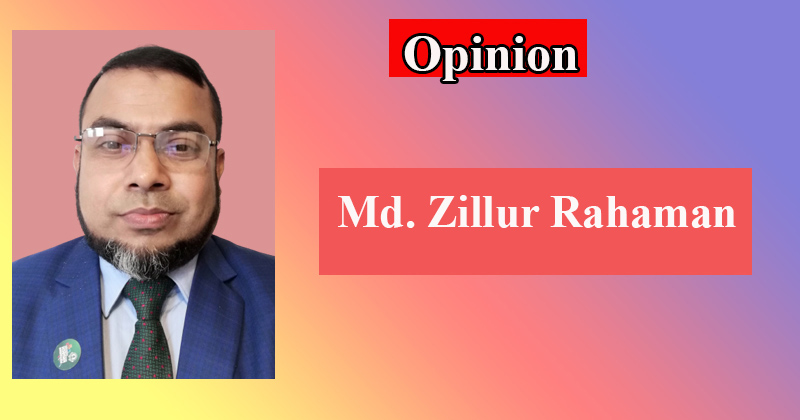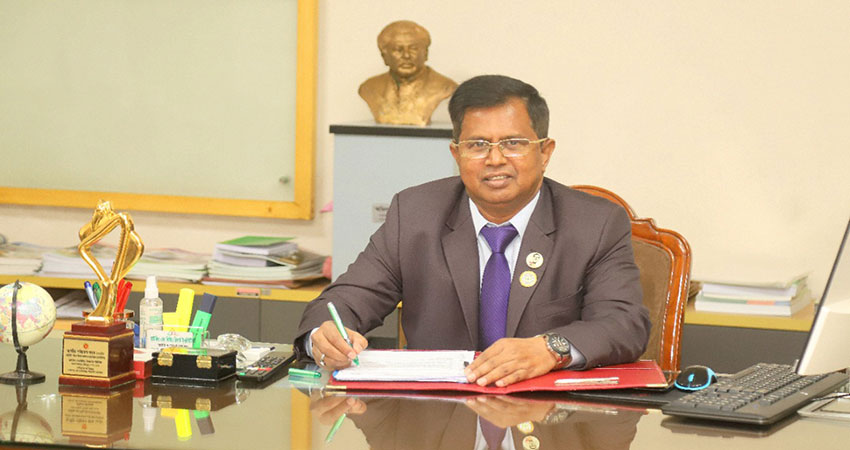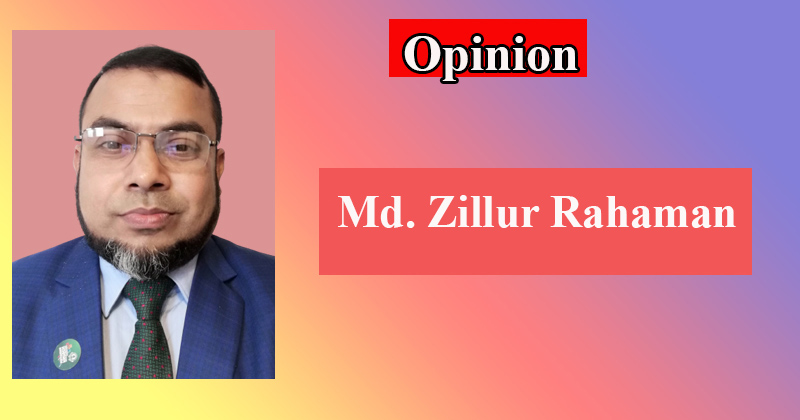Due to the recent Russia-Ukraine war, the instability and crisis created in the energy market around the world, the Bangladesh government has already announced area-based electricity load-shedding across the country to save electricity and energy. On the one hand, the whole world is currently very concerned about climate change and the environment but on the other hand, the developed world continues to emit carbon freely and on the other hand, the suffering and health risks of the poor ethnic groups. For these reasons, renewable energy (RE) is currently considered as a timely environment friendly energy and carbon emission-free material. The United Nations and global environmental groups have been encouraging and emphasizing the use of RE to combat climate change and reach a sustainable energy system.
In fact, RE is an energy source that can be reused in a short period of time and the energy source is not exhausted. Various natural sources such as sunlight and heat, wind currents, water currents, bioenergy (biogas, biomass, biofuels), geothermal energy, ocean waves, ocean heat, tides, urban waste, hydrogen fuel cells etc. are considered as RE sources. In contrast to the fossil fuels that have been used so far to meet the electricity and energy needs of civilization, RE has now gained wide acceptance in the world. Most countries have set targets for the use of RE to meet their electricity and energy needs.
Bangladesh, one of the victims of climate change, is also not lagging behind in terms of RE. Several development partner countries and organizations including Germany are helping Bangladesh in this regard and the government has also taken several steps for the production and use of environmentally friendly energy, especially people around the country of organic gas and solar enenergy. Encouraging consumption as well as fuel economy, even electricity saving lamps have been distributed among the people. In the mid-eighties, private enterprises played an pivotal role in setting up the first solar home system in Sylhet. Later the Solar Home System (SHS) program was greatly expanded by Infrastructure Development Company Limited (IDCOL). Since SHS was launched in 1996, it is currently the largest RE program in Bangladesh. Around 45 lakh solar home systems have been installed so far and the number is increasing due to the integrated program undertaken by the government through financial institution IDCOL.
To ensure the use and development of RE in Bangladesh, the government enacted the RE Policy on December 18, 2008. The Government of Bangladesh also enacted the Sustainable and RE Development Authority - SREDA Act-2012 which identified solar energy, wind energy, hydropower, biomass, bio fuel, geothermal, river currents, ocean waves etc. as sources of RE. In 2016, the Power System Master Plan (PSMP) set a target for the share of RE to reach 10 percent (2470 MW) of the total power generation capacity by 2021, but the target was not achieved due to some constraints. At present Bangladesh has 146 power plants and the power generation capacity from other sources is about 24 thousand MW, out of this, only 776 MW is being generated from renewable sources, which is about 3 percent of the total capacity. If Bangladesh can achieve the set target, the rate of electricity generation from renewable sources will reach 10 percent by 2030.
At present, construction of 9(nine) solar powered power generation plants with a combined generating capacity of 450 MW is underway. Apart from this, a wind powered power generation project is also underway, from which 60 MW of electricity will be generated. Apart from this, 12 solar powered power generation plants with a total production capacity of 500 MW are under contract. Several other wind and biomass power generation plants are also in the works, with a combined generation capacity of 130 MW.
The hope is that the countries with the highest carbon-dioxide emissions in the world are using the most RE. Because of pressure from people in their own country and international environmentalists. USA, China, Germany, Russia, India are the most RE users in the world. Many US states have separate legal obligations and feed-in-tariff systems for RE use. China has the largest hydropower plant in the world and it has also established the largest wind and solar power plants. More than 100 coal power plants have been shut down in China. Currently, India has the world's largest solar power plant with a generating capacity of 648 MW. Germany has the largest number of solar panels installed. Nordic countries are helping to promote RE by enacting friendly legislation. At the same time, most developed and developing countries worldwide have adopted policies and plans to increase RE.
Bangladesh lags far behind South Asian neighbors Pakistan and India in using RE for power generation. An analysis of the data shows that Bangladesh generates three percent of its electricity from RE, compared to 24.16 percent of its total electricity generation capacity in India, which is about 90,399 MW. The total power generation capacity of the country is 3,74,199 MW (excluding hydropower). On the other hand, Pakistan's total electricity generation capacity of 37,402 MW (excluding solar and wind) generates five percent (1,870 MW) from renewable sources.
According to the data of Bangladesh Bureau of Statistics in 2010, about 90 percent of the people in the cities had access to electricity and on the other hand 42 percent of the people in the villages had this facility. The government has recently announced 100% electrification. However, the power infrastructure is not faultless and load shedding still occurs as a result. In this case setting up more thermal power plants can be a good solution. However, in the future, RE will be the main source and driving force of electricity.
Bangladesh is well-suited for solar power as the country's coastal areas receive around 11 hours of clean sunlight per day. Insolation rates in these areas are 3.8 kw/m2/day and 6.4 kw/m2/day. The Bangladesh government has already introduced solar home systems, abbreviated as SHS, to provide electricity to those that are not connected to the power grid. This program has helped more than 40 lakh families. About 50,000 SHS are being installed every month since 2009. The World Bank has named it the fastest growing solar home system activity in the world. Clearly, coal-based power plants in Bangladesh have been left behind in the electrification roadmap. Therefore, RE should be the main driving force and source of the future.
RE has gained wide acceptance in the world today. Most countries have set targets for the use of RE to meet their electricity and energy needs. Currently, among the various RE sources, solar energy is the most promising and biogas and biomass have limited use. Most of the world's fossil fuels are used for power generation, motor vehicles and home heating. For this reason, various researches are underway internationally to introduce sustainable power systems using RE, sustainable vehicle systems and energy efficient household products rich in green technology.
The Government of Bangladesh has undertaken an ambitious target of generating more than 4,100 MW of electricity from renewable sources in climate change in view of the 'Climate Change Summit COP-26' held in Glasgow. This initiative has been undertaken mainly to reduce greenhouse gas emissions at a significant rate. Half of this production i.e. 2,277 MW will come from solar energy and 1,597 MW of electricity will be produced using water and wind respectively. Energy experts say that RE use in Bangladesh has not reached the desired level due to lack of commitment at the policy-making level, land shortage, lack of coordination among state institutions and rigid bureaucratic mindset in favor of conventional energy. However, RE in Bangladesh has now reached the take-off stage. All sectors face huge challenges at the take-off stage. If these challenges can be faced, RE will be the driving force of the future in Bangladesh, like other countries in the world, and in this case, appropriate importance and steps should be taken in RE in the future.
Writer: Banker and Columnist
The Daily Citizentimes/OH/MY


















